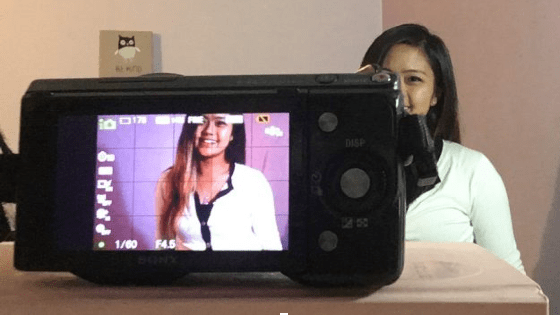Many of you have decided to take that leap and become an online English teacher, or you may even be thinking about applying for teaching jobs abroad in the not-so-distant future. We understand how nerve-wracking it can be to prepare for a TEFL/TESOL interview, especially if you’re new to teaching! So, we’ll outline what to expect and share tips to help you excel at this important step ahead of you.
If you’re new to teaching, you’ll want to get initial training and qualification with a TEFL certificate. You can explore our online TEFL courses to get started!
What is the purpose of a TEFL/TESOL interview?
Whether it’s for an online teaching job or an in-person job, the purpose of the interview is essentially the same. The interviewer is observing your body language, analyzing how you speak and present yourself, and asking you questions – all in an effort to determine if you have the qualities they’re looking for in a teacher and if you’re a good fit for their school or company culture.
If hiring for an online teaching job, the organization also wants to assess factors such as your comfort level in front of the camera and how well you use technology. In fact, most online teaching companies will utilize their own platforms for the interview to give you an idea of what to expect as a teacher with them, and to give them a preview of whether you’re a good fit within their context.
What can I expect in a TEFL/TESOL interview?
Online teaching jobs
A few of the interview components unique to the hiring process for online teaching jobs are the interview demo, your virtual classroom background set-up, and a trial class via the company platform.
Teaching Demo
Many online English companies will require a teaching demo to be submitted as a preliminary measure prior to an actual interview. This helps them have a visual of the skills that the teacher already possesses to determine if there is teaching potential. They’ll provide the instructions to create the demo, so follow them closely. Some of the requirements might be:
When creating your demo, speak clearly, be energetic, and have a clean or bright background that would appeal to the students. Taking your time with the demo could mean being invited to the next step: the interview. Practice several times first, then record your best demo!

Teaching Background
When preparing for an online TEFL/TESOL interview, your online teaching background should be appealing to the age groups that you intend to teach. For instance, if you are applying to teach younger students (elementary/middle school age), it would be beneficial to have a colorful and fun background with plenty of props. Younger students LOVE color, characters, and props that encourage them to participate in class.
Get some ideas for online teaching props.
Trial class
Additionally, English companies may want to conduct a small trial class, with or without students, to have a visual of your teaching methodology. However, this is nothing to panic about! Again, speak clearly, be energetic, and be yourself! You’ve already been chosen for the interview, so they see something in you, and not all teachers are the same, which is what will make you stand out. Show what you know and give it your best shot.

In-person teaching jobs
The interview components unique to in-person interviews include more questions focused on your background to determine your adaptability and teaching philosophy and a more formal trial class.
Questions to gauge your adaptability
To prepare for an in-person TEFL/TESOL interview, especially for a job abroad, it’s important to share your interest not only in the school and the position but the host country. You should also be prepared to demonstrate how you have adapted to new situations in the past so that the employer can imagine you adapting there as well. Be ready for questions such as:
Adaptability is extremely important, especially when teaching abroad. Teaching contracts usually require a 6- to 12-month commitment, and schools are seeking teachers who will embrace the local culture, complete the full teaching term, and possibly stay longer.
Questions about your teaching philosophy
A teaching philosophy covers your teaching style and core beliefs. Some related questions an interviewer might ask include:
Formal trial class
You may be asked to give an in-person trial class (either part of a lesson or an entire class) at the language school or center. You’ll be observed by another teacher and/or the head of the school or company’s hiring manager to see if you’re a good fit for their students.
What should I do to prepare for a TEFL/TESOL interview?
You’ve thought about answers to common interview questions and practiced possible answers. What else can you do to prepare?
Do your research
Next, research the school or online tutoring company you want to work for. Read about their history and what their work model is and pay close attention to their academic or corporate mission. This will give you a pretty good idea of what they are looking for in an English teacher. Likewise, think about how you can tie your own life experience to their goals by looking for concepts you can identify with. Write these ideas down and practice them either by yourself or with a friend. If you are able to match your thoughts and answers to the school’s or company’s core values, you will more than likely stand out over other candidates who are applying for the same job.
Practice speaking with confidence and conviction
The ability to speak English fluently is the first box to be checked off, and though accent-free English is no longer as important as it was 20 years ago, proper spoken and written grammar remains a significant characteristic that interviewers will be paying close attention to. Also, try to be clear and calm in your speech, but don’t fall into a monotonous drone. Finally, avoid over-using filler words and phrases, such as like, totally, awesome, and you know what I mean?
Refresh your memory with common ESL terms and acronyms prior to your interview.
For a meaningful lesson on self-awareness and speaking with confidence, especially the use of “like” when speaking, watch the following video featuring the inspiring teacher and poet, Taylor Mali:
Prepare to present yourself in a professional manner
Just because the interview is via Zoom, doesn’t mean you shouldn’t treat it just the same as an in-person interview.

What are the top questions to ask an interviewer in a TEFL/TESOL interview?
Not only is it important to be prepared for the interviewer’s questions but also to be prepared to ask some questions of your own! Do some research on the company to be fully aware of what they do and how they operate. You are helping the company reach its goals by providing a valuable service. However, you will want them to help you reach your professional goals as well. By doing your research and asking quality questions of your own, you can determine if the company is the best fit for you.
Here some possible questions to ask in an online or in-person TEFL/TESOL interview:
Need more inspiration? Read this next: Questions to Ask Before You Take a TEFL Job.
When preparing for a TEFL/TESOL interview, do your research, be enthusiastic and professional, and wear your brightest smile. Once you get to the interview, you’re halfway there!










